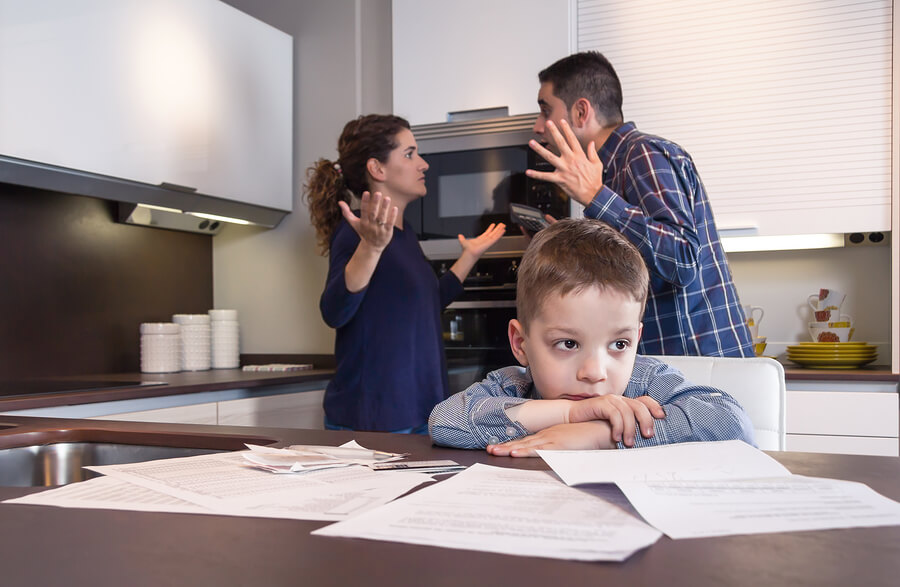 By Rosalind Sedacca, CDC
By Rosalind Sedacca, CDC
Communication with our children is always important. But never as essential as when they are impacted by separation or divorce. Children are vulnerable and easily frightened by changes in their routines. The more you talk to and comfort them, the less stress and anxiety they’ll experience. This is the time to reassure your children that you are taking care of matters and everyone in the family will be okay. Then, of course, take responsibility for doing what needs to be done to assure their wellbeing.
Here are six important ways you can minimize the negative impact of divorce on your children. Equally important, these six steps will help them thrive during and after your divorce.
-
Focus on following structure and normal routines!
Strive to keep as much normalcy in your children’s lives as possible. Maintaining relationships with friends, family and neighbors provides a sense of stability and continuity. Try to keep your kids in the same school and remain in the same house, when possible. It reminds children that life is still going on as usual in many ways. That awareness makes it easier to adapt to the other changes happening at the same time. Whenever possible, make decisions based on their emotional security.
-
Focus on giving kids your love and attention!
Make spending time and attention with your children a priority. With all the stress in your life it’s easy to overlook your kid’s need for stability and security. The best source for that is you. It’s easy to take solace with friends or bury yourself in work. So keep in mind, your children need you more than ever right now. Your love and attention are the most valuable resources you can share with them. Make sure you are generous with both!
-
Focus on preparing kids to handle difficult conversations!
Talk to your children about ways to discuss the divorce with their friends and extended family. Coach them on answers to probing questions from the outside. When asked an uncomfortable question encourage them to say, “I don’t know. My mom and dad are working on that.” Or “You’ll have to ask my mom about that.” Do whatever it takes to remember that your children deserve to have and still enjoy being kids.
-
Focus on connecting with other children of divorce!
Seek out other families who have experienced divorce as part of a new network. This can provide support and new friends for you as well as for your children. They will appreciate meeting other kids who know what they are going through. They can share feelings and stories, knowing they will be understood. School guidance counselors may be able to help you find support groups, social media connections or other social gatherings for children of divorce.
-
Focus on avoiding and preventing emotional challenges!
Don’t wait for emotional or behavior problems to appear. It is often wise to talk to a co-parenting coach or family therapist in advance about issues to be aware of. Or schedule a few sessions with your children so they can express their anxiety, fear, anger, etc. and feel “heard” by an objective third party. Ask friends, pediatricians, clergy or school professionals for referrals to professionals experienced with divorce.
-
Focus on not robbing your kids of their childhood!
Let your kids still be kids. Your teens, too! That means never burdening them with adult responsibilities or information. Their brains can’t digest it. Your children are not your messengers. Use texts or online scheduling tools for that! They are not your confidants. Use coaches and counselors for that! Never share adult content with them, as tempting as it may be. Even your teens. It halts their childhood innocence and throws them into your parental drama. That’s not only foolish, it’s selfish!
Some days you may want to hide in a closet or under the blankets in bed. So may your children. But they can’t always express what they are feeling and why. It is your responsibility to be diligent in protecting your children – emotionally and psychologically as well as physically. Keep the doors to communication open as non-judgmentally as you can. This will go a long way toward helping the children you love get through these challenging times with the best possible outcome.
* * *
Rosalind Sedacca, CDC is a Divorce & Parenting Coach and author of the internationally-acclaimed ebook, How Do I Tell the Kids about the Divorce? A Create-a-Storybook Guide to Preparing Your Children — With Love! For her free ebook on Post-Divorce Parenting: Success Strategies for Getting It Right!, her coaching services and other valuable resources on divorce and co-parenting issues visit: www.childcentereddivorce.com.
© Rosalind Sedacca, CDC All rights reserved.




